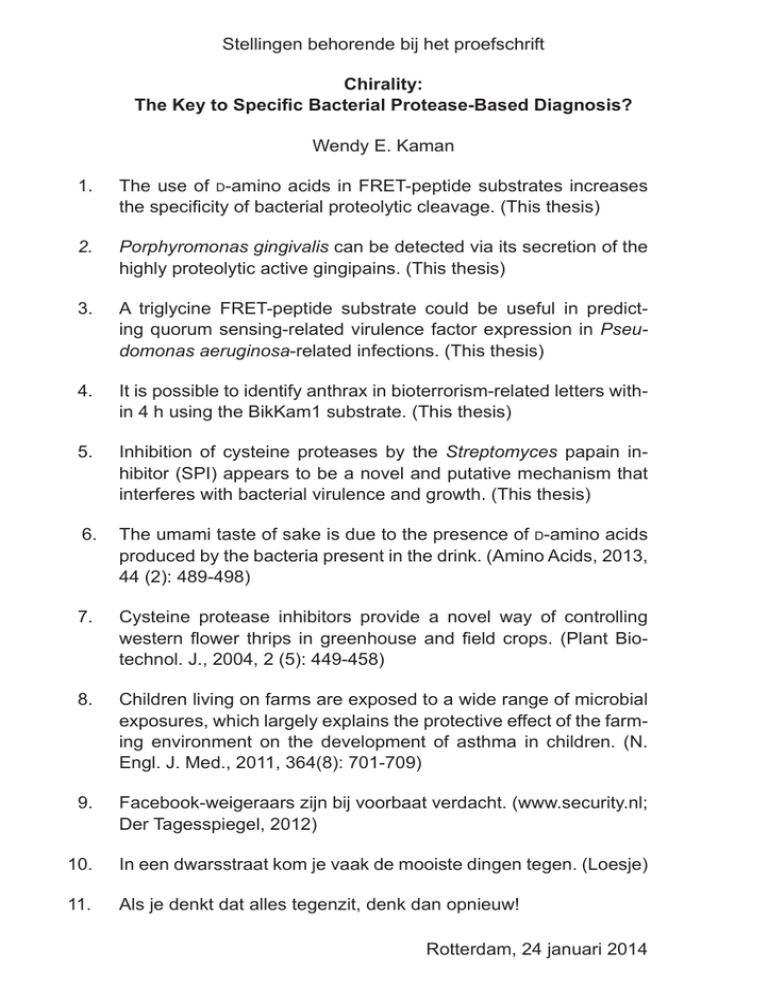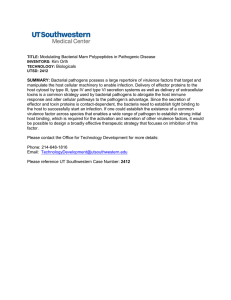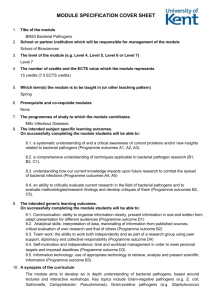Stellingen behorende bij het proefschrift Chirality: The Key
advertisement

Stellingen behorende bij het proefschrift Chirality: The Key to Specific Bacterial Protease-Based Diagnosis? Wendy E. Kaman 1. The use of d-amino acids in FRET-peptide substrates increases the specificity of bacterial proteolytic cleavage. (This thesis) 2. Porphyromonas gingivalis can be detected via its secretion of the highly proteolytic active gingipains. (This thesis) 3. A triglycine FRET-peptide substrate could be useful in predicting quorum sensing-related virulence factor expression in Pseudomonas aeruginosa-related infections. (This thesis) 4. It is possible to identify anthrax in bioterrorism-related letters within 4 h using the BikKam1 substrate. (This thesis) 5. Inhibition of cysteine proteases by the Streptomyces papain inhibitor (SPI) appears to be a novel and putative mechanism that interferes with bacterial virulence and growth. (This thesis) 6. The umami taste of sake is due to the presence of d-amino acids produced by the bacteria present in the drink. (Amino Acids, 2013, 44 (2): 489-498) 7. Cysteine protease inhibitors provide a novel way of controlling western flower thrips in greenhouse and field crops. (Plant Biotechnol. J., 2004, 2 (5): 449-458) 8. Children living on farms are exposed to a wide range of microbial exposures, which largely explains the protective effect of the farming environment on the development of asthma in children. (N. Engl. J. Med., 2011, 364(8): 701-709) 9. Facebook-weigeraars zijn bij voorbaat verdacht. (www.security.nl; Der Tagesspiegel, 2012) 10. In een dwarsstraat kom je vaak de mooiste dingen tegen. (Loesje) 11. Als je denkt dat alles tegenzit, denk dan opnieuw! Rotterdam, 24 januari 2014











